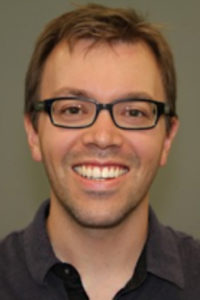junior faculty teaching fellow spotlight: will grissom
each month, the cft newsletter highlights the work of our junior faculty teaching fellows. this month, will grissom, assistant professor of biomedical engineering, talks about his teaching philosophy and interests:
my group is currently focused on technical developments for magnetic resonance imaging (mri)-guided focused ultrasound and ultra-high field mri. ultra-high field strength mri scanners, such as the 7 tesla scanner at the vanderbilt institute of imaging science, promise substantially higher signal-to-noise, spatial and spectral resolution, and new and stronger contrast mechanisms than current clinical mris, which have field strengths of 3 tesla or lower.

“i would most like to develop strategies to increase student engagement in my lectures, in particular ways to flip the classroom. i expect that this would allow me to increase the rigor of my courses while improving student comprehension and retention of the material.”
during my year in the cft junior faculty teaching fellows program, i want to design a course called magnetic resonance imaging instrumentation. in it, students will build a tabletop mri scanner from the ground up. it will be an elective aimed at senior biomedical engineering students; as such, the lecture portion will start from the basics of mr imaging, and then cover each component of the scanner in some detail, while the students build that component in the lab. since most students will have had only a very basic introduction to electric circuits and no radiofrequency (rf) engineering instruction, the lectures will also teach these concepts as they relate to mri signal generation and detection. i want students to come away from the course with an intuitive understanding of mri, with an appreciation for how to go from the governing equations and physics of the systems to the actual instruments, and with practical electrical and rf engineering skills that they could apply to a wide variety of problems. i intend to offer this course during the spring 2014 semester, which will enable me to leverage the program both in early design of the course, and in real time as i teach it.
i would most like to develop strategies to increase student engagement in my lectures, in particular ways to flip the classroom. i expect that this would allow me to increase the rigor of my courses while improving student comprehension and retention of the material. i would also like to improve my skills in developing homework and laboratory assignments in order to both simplify them so that students can identify ever-clearer connections to classroom material, and to increase their rigor, so as to achieve a higher level of intellectual engagement. i am also eager to learn strategies for high-level course planning, and more effective and efficient lecture preparation.


leave a response